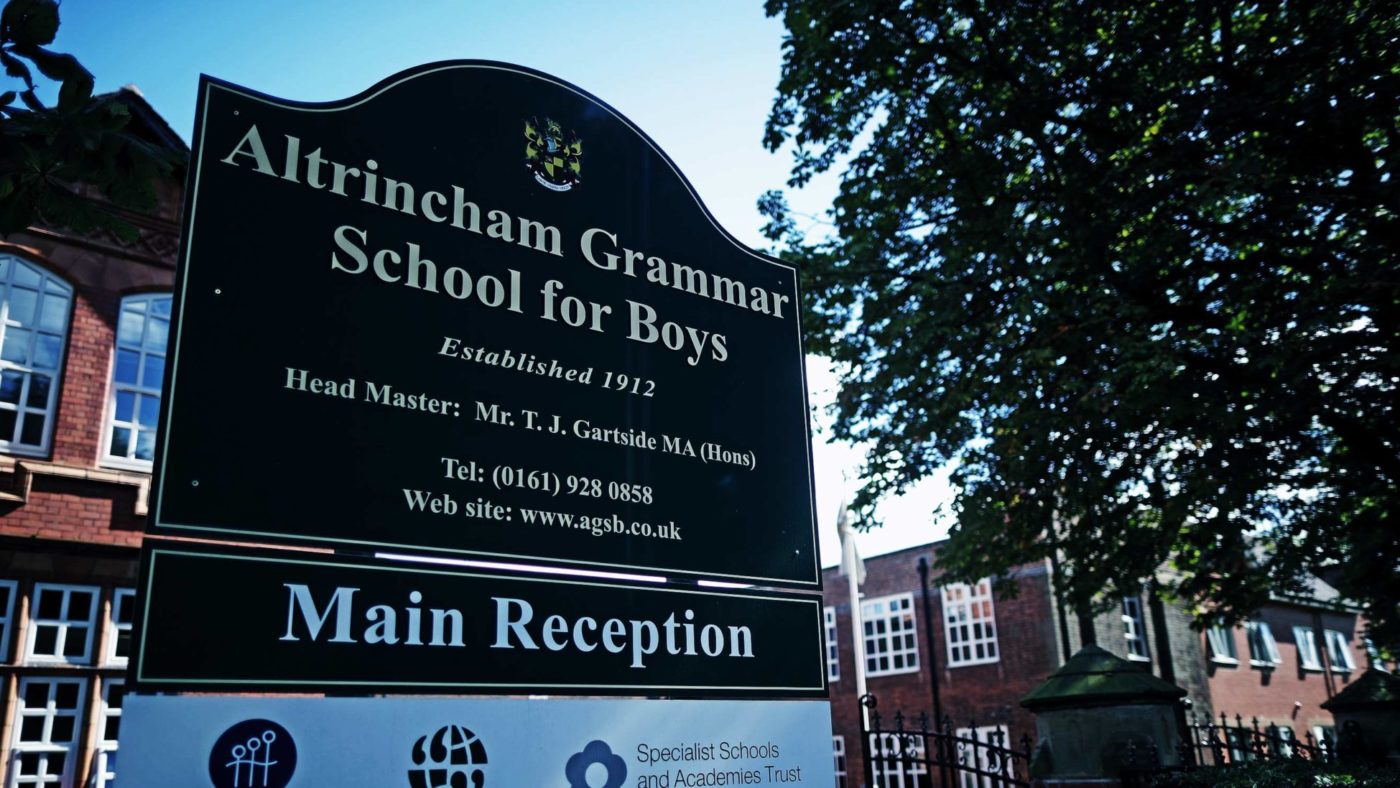During the 2017 election campaign, Theresa May pledged to lift the ban on opening new grammar schools, only for the proposal to be omitted from the Queen’s speech and appearing to be shelved
indefinitely. Just a few months later, Weald of Kent Grammar School opened up a new annex and arguably established the first new grammar in fifty years.
The recently appointed education secretary, Damian Hinds, has enthusiastically backed further expansion of existing grammar schools, so it looks like there are more annexes to come. While there is strong parental demand for more selective state education, is there a good case for expanding grammars?
The debate generally revolves around whether they are engines of social mobility. Advocates argue that grammars give bright students from poorer backgrounds a better education, but in reality only 3% of grammar school students are eligible for free school meals, compared to a 15% national average. Grammar schools are stuffed full of middle-class kids (although not necessarily white ones — ethnic diversity is actually higher in grammar schools) and this is often blamed on extra tuition for rich kids sitting the eleven-plus exams.
There is more to the appeal of grammar schools than just their supposed egalitarianism. Supporters claim they celebrate success and promote academic excellence. These points hold some truth, but in an economy which requires more skilled workers than ever, we must question whether a narrow focus on the top performers makes sense.
We live in an age of mass collaboration, with thousands of engineers working on “Big Science” projects such as CERN, and global corporations requiring many skilled employees. It is crucial to the prosperity and political stability of this country that the whole population is well-educated and able to participate in an increasingly complex labour market.
Comprehensive schools certainly have their failings, particularly in encouraging students from poorer backgrounds to excel, which grammars might be able to address. In partially selective areas, those going to grammar schools receive a substantial boost in GCSE grades compared to their peers in comprehensives, with the biggest gain felt by the least well off. But in fully selective systems such as Buckinghamshire and Kent, the picture is bleak.
Overall performance is worse than non-selective areas; those going to grammar schools do a tiny bit better whilst the rest, and particularly free school meal students, suffer serious setbacks. Dr
Eleanore Hargreaves of UCL has researched how separating children at an early age according to ability can be a self-fulfilling prophecy. As she points out, what we call “talent” is “often the result purely of intensive hard work and others’ encouragement”. It is also the product of being in a successful environment and being inspired by one’s peers.
Removing too many of the top performing students from comprehensives seems to have a detrimental effect on those left behind, without offering any real benefits. If we can remove the clusters and disperse grammar schools more evenly throughout the country we could replicate the positive situation seen in partially selective areas.
There are currently 163 grammars in England, which are mainly bunched around London and fully selective areas. If instead we had one for every local authority, there would be 326 distributed evenly throughout the country. There were 3,268 mainstream secondary schools as of 2012, so a grammar in each council area would mean roughly 10% of state students going to selective schools. This would achieve quality rather than quantity amongst grammar schools without undermining the comprehensive system.
So how can we ensure smart, determined students from poor backgrounds are well represented in these schools? The biggest barrier is the eleven-plus itself.
As a tutor who has taught pupils preparing for the exam, it is clear that the questions follow a certain formula which requires practising specific techniques. It is not, as some claim, a tutor-proof examination of pure cognitive ability. That would be implausaible, as a tutor-proof test would require the syllabus being randomised every year, a huge challenge to do well and a vast administrative burden. The test is clearly biased towards those who can afford tutoring. But perhaps the more pertinent question is why should it only test cognitive ability anyway?
The purpose of the test should be to determine who would thrive in an academic environment which requires both intelligence and the right attitude. Dr Christopher Ray, chairman of the Headmasters’ and Headmistresses’ Conference and former head of Manchester Grammar School, has proposed the abolition of the eleven-plus and instead having intensive observation days. This would be tutor-proof but highly costly and would give the schools the power to select only students who they like the look of.
A better solution would be for teachers from the primary schools to submit their top choices. This selection by “continuous assessment” is precisely how students are currently selected for ability groups within their year, so it makes sense to extend this. It would also remove the stress related to the exam, one of the most common criticisms from primary school teachers.
Based on strict criteria, the top two students from each primary school could be selected to go to their catchment grammar (if they want to). The criteria must be strict to ensure fairness and things like effort, determination and intelligence should be considered, with a bias towards helping poorer students. This will bring about the crucial social mobility required and also maintain the success and excellence which grammar school advocates cherish.
Grammar schools seem to be part of the nation’s blood. They play a symbolic role in our collective imagination but perhaps they can be more practical in promoting high standards and social mobility amongst young people. The current grammar system is designed only to reward cognitive ability but ends up perpetuating financial inequality. Whether the government decides to go forward with introducing more grammar schools or not, selective education needs to be more evenly spread and the iniquitous eleven-plus should be scrapped.


